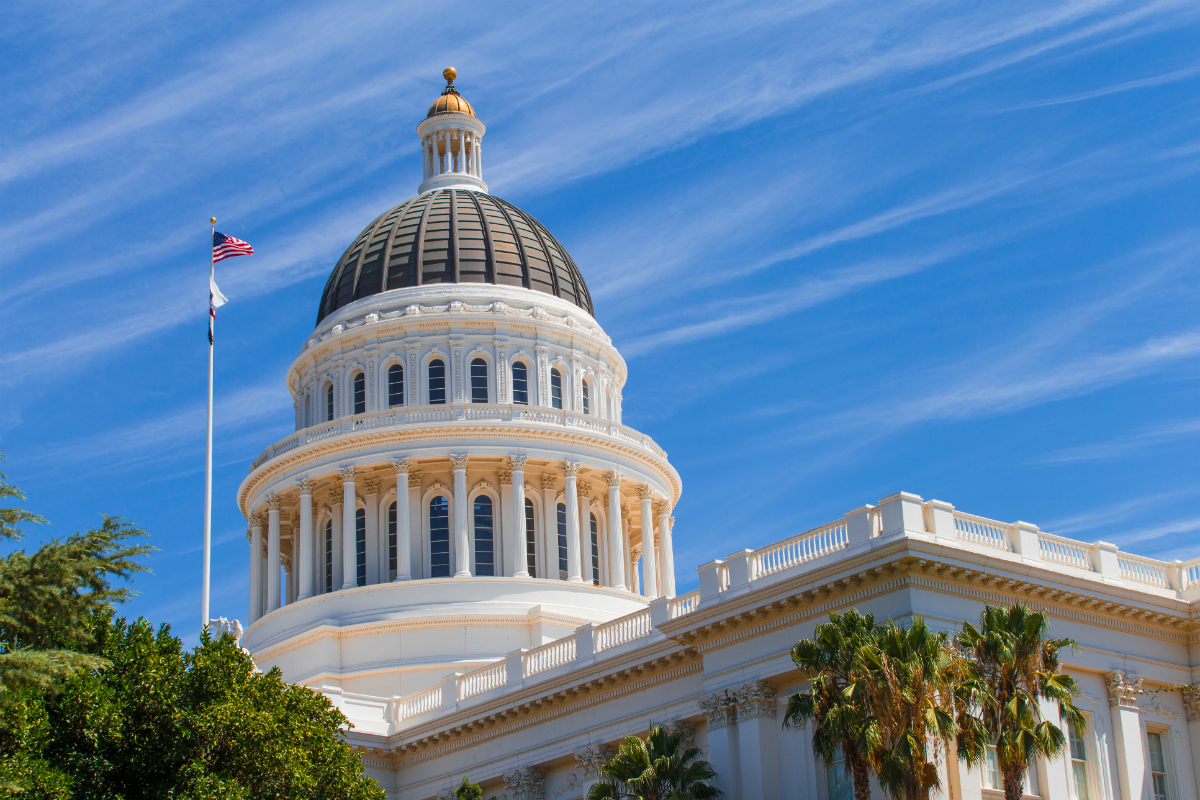By Vernon Billy
Students are the future torchbearers of liberty
I hope I got your attention…
By the time you read this, the November 2018 election will be history and the outcomes of Election Day will have been debated and analyzed by every political pundit and pollster. This analysis, such as it were, is welcomed by political junkies and policy wonks across the political spectrum. But underneath all this analysis (or noise) is the fact that Election Day reflects several fundamental underpinnings of our democracy (democratic republic) on which we must continue to educate students if we truly believe in our founding documents and value the duties bequeathed to every citizen.
‘Our constitutional roots give life to the flowers of liberty’
During the embryonic years of the United States, there raged a critical debate amongst the intellectual elite and some common folk in the country about how our would-be nation should be structured and governed. Only a few years after successfully repelling the British Redcoats and delivering a stunning defeat to England — one of the most powerful countries in the world at the time — the new leaders of “these United States” (actually, a confederation of states) vigorously debated the future governance of our young country.
Similar to modern day America, the country was divided into two factions: the Federalists and the Anti-Federalists. The Federalists were proponents of a strong central government and supported the ratification of the Constitution in 1788. The Anti-Federalists supported a more decentralized approach, favored vesting more power with each state, and opposed the ratification of the Constitution until the inclusion of the Bill of Rights. Each side passionately debated the merits of how our young country should be formed in writings that were published throughout the land.

While both parties may have vehemently disagreed, they truly believed they had the country, their states and their fellow countrymen’s interests at heart. Both parties’ beliefs were based, in part, on their recent experience under British rule, and the history of the colonies as they struggled to secure their rightful and just place in the world.
Whether it was realized at the time or not, the ensuing public debate and the publication of the Federalist Papers helped to cement the principles that ultimately found their way into the Constitution. It also helped establish the values and principles that remain central to sustaining our republic — education of the citizenry, freedom of speech, the right to petition our government and the right to peaceably assemble and protest. These values and principles are the flowers that are given life from the roots of the Constitution. Ensuring that students — our future leaders — are equipped to articulate and defend these principles, advance the education of the citizenry, and carry out the duties vested with every citizen is essential if our republic is to see another 242 years of prosperity and success.
A common definition of citizenship pairs rights and privileges of citizenship with “duties” and “obligations.” One such basic duty is to vote in elections, while other duties or obligations may be more esoteric to many Americans, but are equally important (if not more important) to preserving our democracy, ensuring the equal administration of justice, and maintaining a free society.
Our country’s founding documents not only establish the framework for our system of government and define the role of government, but they also make prolific statements about the rights of citizens as well. Buttressing these documents are the statements our early leaders made about key aspects of society — such as education — that needed to be developed in order to advance the idea of a republic that would become these United States of America.
‘The bedrock of our republic’
Our nation’s first President, George Washington, declared that:
“A primary object should be the education of our youth in the science of government. In a republic, what species of knowledge can be equally important? And what duty more pressing than communicating it to those who are to be the future guardians of the liberties of the country?”
— George Washington
Today, in California, we strive to ensure that the future guardians of our liberties are educated about the history of our country, the constitutional rights and principles that are the bedrock of our republic and the duties that every American can (and should) exercise.
Statutorily, and through programs administered in schools, we strive to prepare students to carry out some of their civic duties. For example, the Education Code requires that the History-Social Science Frameworks be inclusive of documents like the Constitution, the Bill of Rights, the Declaration of Independence, the Magna Carta and the Federalist Papers. Our schools conduct many activities around history-social science classes, and encourage the creation of various on-campus clubs and activities that provide students an outlet to express themselves, supplement their academic studies, and develop the basic skills that can be associated with fostering social and civic engagement. Moreover, in times of extreme social or policy upheaval, our schools allow students to exercise their constitutional right to protest (within parameters).
Allowing students to explore these constitutional rights and providing them with an education about the historic development of our country, our form of government and the associated rights afforded to each citizen is key to building an understanding of the duties that every American is encouraged to exercise. For example, in California, when securing a driver’s license, an eligible person can be registered to vote so they can carry out one of the most basic, but important duties as a U.S. citizen. Thus, we have paired the values of our republic with administerial activities to promote the exercise of duties that can help to preserve our democracy and advance the underlying values and principles articulated in the Constitution.
‘Dumb and silent we may be led…’
But, what is oftentimes lost is that there are other important rights and duties of every citizen — the right to petition the government, the right to protest, and the freedom of speech — that the founding architects of the U.S. knew, from first-hand experience, would be important in ensuring that the government was working for the people.

“If freedom of speech is taken away, then dumb and silent we may be led, like sheep to the slaughter.”
— George Washington
These important rights were clearly captured in the First Amendment to the Constitution, which prohibits the United States Congress from enacting laws that would abridge the freedom of speech, or of the press; or the right of the people to assemble peaceably, or to petition the government for redress of grievances.
Now, we could spend a lifetime talking about the historical intrigues and contradictions associated with the development of these rights and activities in America, or how our young country passed a law — the Sedition Act of 1798 — that was antithetical to the Constitution and the First Amendment. But for now, I think it’s more valuable to reflect on the fact that these rights are key pieces of the cultural DNA of America, and representative of the core rights guaranteed in our country’s founding documents.
As such, students deserve a clear presentation about how the freedom of speech and the right of the people to protest and petition the government give “life” to the words in our Constitution. Without the unfettered exercise of these rights, the Constitution could become a nicely decorated, but empty vase without purpose or meaning. They are, in fact, the people’s accountability mechanism, the drivers for change, and simultaneously the protectors of the Constitution and weapons against tyranny.
Thomas Jefferson, an Anti-Federalist and supporter of state and local government authority, once said, “The spirit of resistance to government is so valuable on certain occasions, that I wish it to be always kept alive.” In a letter regarding Shays’ Rebellion written to James Madison on Jan. 30, 1787, Jefferson argued that an occasional rebellion serves to preserve freedoms, stating, “the tree of liberty must be refreshed from time to time…”
“The spirit of resistance to government is so valuable on certain occasions, that I wish it to be always kept alive.”
— Thomas Jefferson
Jefferson’s sentiments, one could argue, were woven into the Declaration of Independence along with the encouragement and a duty of the people to abolish or alter their government(s) if they cease to secure the peoples’ life, liberty and pursuit of happiness. In fact, this is what the colonies did in response to offenses (judicially, militarily, economically, socially, and legislatively) inflicted upon them by the British Empire.
“We hold these truths to be self-evident, that all men are created equal, that they are endowed by their Creator with certain unalienable Rights, that among these are Life, Liberty and the pursuit of Happiness. That to secure these rights, Governments are instituted among Men, deriving their just powers from the consent of the governed, — That whenever any Form of Government becomes destructive of these ends, it is the Right of the People to alter or to abolish it, and to institute new Government…”
— Declaration of Independence
The United States was founded on protest, resistance, and direct confrontation with a government that was abridging the rights of life, liberty and the pursuit of happiness of the first Americans. The most obvious example of such resistance was the Boston Tea Party. American history is littered with innumerable examples of Americans exercising their constitutional rights to better our country, when they or other Americans were being denied the unalienable rights proclaimed in the Declaration of Independence. Take, for example, the Women’s Suffrage Movement, the Civil Rights Movement, or the work of abolitionists to end slavery.
‘The future torchbearers of liberty’
History is clear, protesting, the freedom of speech, and petitioning our governments are truly a part of the American DNA, and continue to be important powers of the people that must not be muffled, but exercised and periodically amplified for the benefit of the republic.
We have a public education system that continues to evolve in educating the masses on the “science of government,” and serves as the basic training of sorts for our youth to become the torchbearers of liberty. We must not extinguish these torches with falsehoods or selective information that doesn’t truly represent the contributions, activities, and motivations of all the people who helped shaped our country. Generations of Americans from all backgrounds have fought to preserve and advance the eloquent ideas and principles contained in our founding documents.
We need students to not only become petitioners for a specific policy or social issue, but petitioners and protectors of the rights and principles contained in the Constitution. This can only happen if students are educated about all aspects of our republic, the vagaries, nuances and shortcomings associated with the rights and declarations in the Constitution and its uneven application over the centuries. The education of students about our founding documents and our country’s “hi-story” should not just be a “story,” but an accurate reflection of how we, as a nation, got to where we are with all its ugliness, inequality, contradictions, heroics, and vision in tow.
This, I submit, is necessary if we want students to become the torchbearers of liberty, and to continue the enduring struggle for a more perfect union.
Vernon M. Billy is the CEO & Executive Director of the California School Boards Association. This column originally appeared in California Schools magazine.




